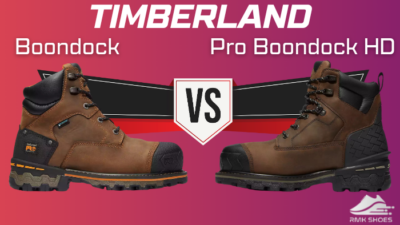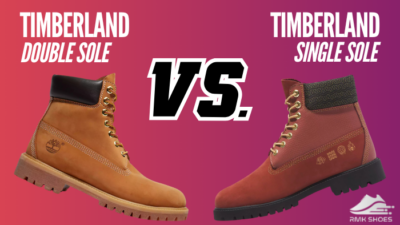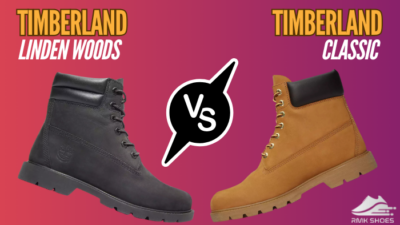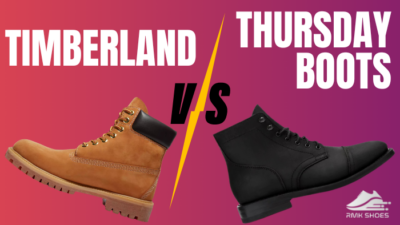Nike, Adidas, and Puma are the face of the footwear industry and the best in terms of user experience.
There’s no doubt about their quality and performance. But even so, a question comes to everyone’s mind—which brand is the best?
Today, I’ll compare the features of Nike, Adidas & Puma, and also answer your long-awaited questions.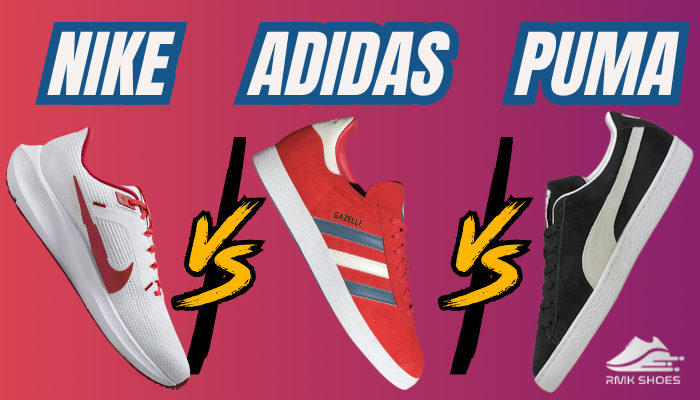
So, let’s begin.
An Overview of Nike, Adidas, and Puma
The intense rivalry among footwear giants Nike, Adidas, and Puma has shaped the athletic and lifestyle fashion landscape for decades.
Nike, Adidas, and Puma are the top three shoe brands in the current market. These companies are widely popular for their design, performance, and impressive marketing.
And why is it not? When sports superstars like Neymar Jr., Lionel Messi, and Cristiano Ronaldo are the brand ambassadors of these companies.
Nike
Nike is one of the most prominent sportswear and athletic shoe manufacturers in the world.
The American company was founded in 1964 by Bill Bowerman and Phil Knight and was initially called Blue Ribbon Sports. The company officially became Nike, Inc. in 1971.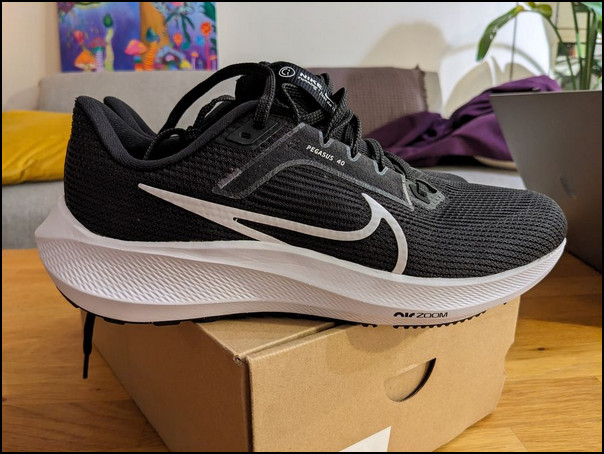
Nike rose to fame through its innovative marketing campaigns and association with star athletes like Michael Jordan.
It revolutionized the athletic footwear industry by introducing the iconic Air Jordans, along with many cutting-edge technologies.
Adidas
Adidas was founded by Adolf Dassler and Rudolf Dassler in 1949. But later, they split up, and the company continued to innovate.
The brand gained international recognition during major sporting events and the Olympics.
It became popular among customers with quality athletic footwear and innovative designs.
The three-stripe logo is widely recognized, and Adidas has maintained its position as a top contender by collaborating with athletes and celebrities, such as Lionel Messi and Kanye West.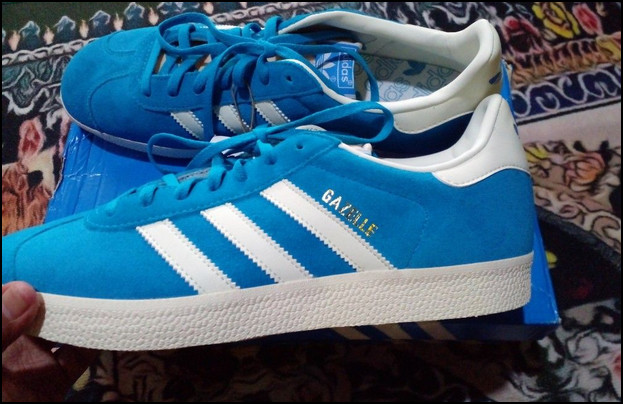
Over the years, Nike has become a global powerhouse, known for its swoosh logo and commitment to pushing the boundaries of performance and design.
Puma
The German footwear brand Puma was founded in 1948 by Rudolf Dassler. He was the younger brother of Adolf Dassler—the founder of Adidas.
Puma gained early recognition through its innovative football boots and athletic footwear.
It has witnessed Pelé’s iconic World Cup winning in 1970 and Maradona’s dazzling footwork in the 80s.
Puma has continued blending performance and style, collaborating with high-profile designers and celebrities to maintain its relevance in athletic and lifestyle markets.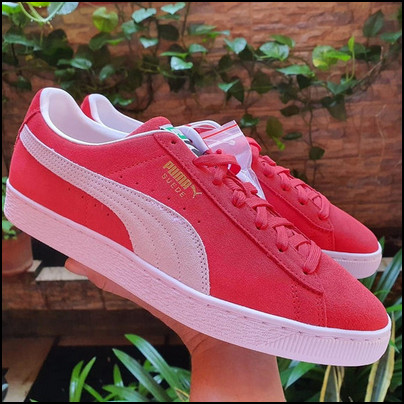
Let’s learn more about the brands and offerings of Nike, Adidas, and Puma from below.
Feature Comparison between Nike, Adidas, and Puma
Nike, Adidas, and Puma are the apparel leaders and produce some of the best series in the market.
They hold more than 60% of the total market cap in the footwear sector, which has helped them gather a huge fanbase.
Take a look at the brand information of Puma, Nike, and Adidas in the table below.
| Feature | Nike | Adidas | Puma |
|---|---|---|---|
| Origin/ Headquarters | Beaverton, Oregon, USA | Herzogenaurach, Germany | Herzogenaurach, Germany |
| Year Established | 1964 | 1949 | 1948 |
| Founders | Bill Bowerman & Phil Knight | Adolf Dassler | Rudolf Dassler |
| Logo | Swoosh | Three Stripes | Leaping Puma |
| Brand Vision | To bring inspiration and innovation to every athlete in the world | To be the best sports brand in the world | The most desirable sports lifestyle company |
| Slogan | "Just Do It" | "Impossible is Nothing" | "Forever Faster" |
| Product Lines | Footwear, Apparel, Accessories | Footwear, Apparel, Accessories | Footwear, Apparel, Accessories |
| Target Audience | Athletes of all levels, performance-driven individuals, sneaker enthusiasts, fashionistas | Athletes, sports enthusiasts, fitness-conscious consumers, fans of classic styles | Young, fashion-conscious consumers, trendsetters, athletes seeking unique styles |
| Popular Products | Air Max, Air Jordan | Superstar, Stan Smith, Ultraboost | Puma Suede, Puma RS |
| Brand Ambassador | Cristiano Ronaldo, LeBron James, Michael Jordan | Lionel Messi, James Harden, David Beckham | Virat Kohli, Usain Bolt, Neymar Jr., Selena Gomez, Lewis Hamilton |
Head-to-Head Comparison between Puma, Nike, and Adidas
Puma, Nike, and Adidas are top names in the market. They offer diverse products for all types of people and ages.
Some models are unique to the brand, for example, Air Jordan, Stan Smith, etc. While, some of them are very similar and have massive competition in the market, like soccer cleats.
Let’s dive deep into the comparison and see which brand comes at the top and makes the best shoe.
Here are the comparisons between Puma, Nike, and Adidas:
Product Offering
Puma, Nike, and Adidas have vast product series designed for specific purposes.
These products are made for different target audiences, and it’s one of the market strategies each brand follows.
Puma
Puma is focused on making all types of shoes—lifestyle, running, and sports. Every category has multiple shoe series to meet the demands of the user.
| Category | Use Case |
|---|---|
| Classics | Suitable for vintage and casual usage. |
| Suede | Sneakers for everyday usage and style. |
| RS Collection | Running System (RS) sneakers for style and exercise. |
| Lifestyle | Ideal for everyday casual usage. |
| Training + Gym | Performance shoes for daily training and exercise. |
| Boots & Mids | High and mid-height sneakers for casual usage. |
| Running | Suitable for running short and long distances. |
| Basketball | Ideal for court sports, especially basketball. |
| Motosport | Fashionable and suitable for motosport and driving. |
| Soccer | Used for playing football on FG and AG surfaces. |
| Racquet Sports | Suitable for playing racquets on different types of court. |
| Golf | Footwear for playing golf on muddy ground. |
| Slides + Scandals | Ideal for the best comfort and casual usage. |
Nike
Nike is a top brand for sportswear. They make lifestyle shoes, but their primary fanbase comes from sports.
| Category | Use Case |
|---|---|
| Lifestyle | Sneaker for regular usage. |
| Running | Suitable for running short to long distances. |
| Gym and Training | Used for indoor gym and training. |
| Basketball | Ideal shoes for indoor basketball grounds. |
| Football | Perfect boots for playing football on any type of surface. |
| Golf | Perfect for muddy ground with good traction. |
| Tennis | Suitable for playing tennis on different grounds. |
| Skateboarding | Ideal for skateboarding and casual usage. |
| Sandals & Slides | Perfect for comfort and day-to-day usage. |
Adidas
Adidas makes both lifestyle and sports shoes for all types of consumers. Similarly to Nike, they widely focus on sports.
| Category | Use Case |
|---|---|
| Sneakers | Ideal for day-to-day usage. |
| Running | Perfect for running short to mid-distance or road and track. |
| Soccer/ Football | Suitable for playing professional soccer or football matches. |
| Basketball | Ideal for an indoor basketball ground. |
| Workout & Gym | Used for indoor gym and exercise. |
| Sandals & Slides | Suitable for indoor and outdoor casual usage. |
| Hiking | Perfect for crooked roads and traveling. |
| Golf | Ideal for muddy surfaces during golfing. |
Design & Color Variants
All three brands offer seamless and modern design shoes and series. There is no fixed design or color for these brands.
However, they have some characteristics that can easily distinguish the brands.
Puma offers bold and vibrant colorways in their shoes. They are more fashion-forward compared to competitors like Adidas and Nike.
The unique design and numerous color options make it easily suitable for casual outfits.
Nike, on the other hand, offers both classic and fashionable designs.
The sneakers have numerous colorways, starting from full white to bold, vibrant colors. It’s a specialty of Nike to attract all types of people to a series or model.
Nike’s iconic swoosh design makes it distinct from all the other brands and has gained lots of popularity.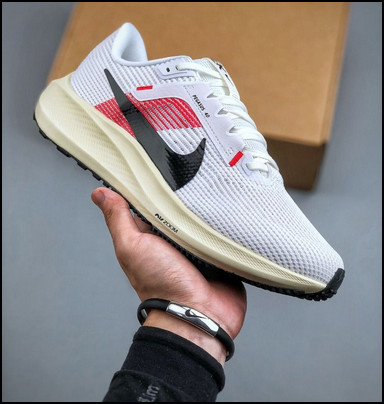
In contrast, Adidas is well-known for its timeless classic design and colors.
Most of their shoes offer single-color shades with the legendary three stripes at the midfoot, making it popular with the seamless design lover.
Material Quality
The material is the most important element of a shoe. It determines the performance, comfort, and overall user experience.
All three brands use different types of materials, but they mostly match in the upper and outsole.
The main differences come in the midsole. All brands have their unique midsole technology that makes a huge impact on comfort and performance.
Puma uses breathable mesh, knit, leather, and suede material for its shoes.
The midsole is made with NITRO Foam, ProFoam, and Hybrid EVA foam. Puma uses blown and carbon rubber to make the outsole construction.
On the other hand, Nike uses Flyknit, Flyweave, Mesh, and Leather for the upper material.
Nike Zoom Air, React foam, and Lunarlon are popular for the midsole, and they use blown rubber for the outsole.
In contrast, Adidas uses Primeknit, mesh, and leather for the upper construction.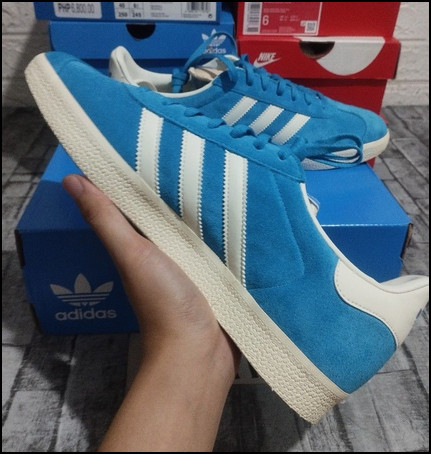
It uses innovative technology like EVA, Lightstrike, Lightstrike Pro, and BOOST for the midsole and Continental rubber on the outsole.
Size Comparison
Puma, Nike, and Adidas offer true to size fit. So, if you purchase from a retail store or online, they will fit perfectly.
Let’s take a glance at the shoe size comparison between Puma vs Nike and Nike vs Adidas.
Puma Shoe Size Chart:
| Puma | |||||||||||||
|---|---|---|---|---|---|---|---|---|---|---|---|---|---|
| UK | 6 | 6.5 | 7 | 7.5 | 8 | 8.5 | 9 | 9.5 | 10 | 10.5 | 11 | 11.5 | 12 |
| USA | 7 | 7.5 | 8 | 8.5 | 9 | 9.5 | 10 | 10.5 | 11 | 11.5 | 12 | 12.5 | 13 |
| Euro | 39 | 40 | 40.5 | 41 | 42 | 42.5 | 43 | 44 | 44.5 | 45 | 46 | 46.5 | 47 |
Nike Shoe Size Chart:
| Nike | |||||||||||||||
|---|---|---|---|---|---|---|---|---|---|---|---|---|---|---|---|
| UK | 6 | 6.5 | 7 | 7.5 | 8 | 8.5 | 9 | 9.5 | 10 | 10.5 | 11 | 11.5 | 12 | 13 | 14 |
| USA | 7 | 7.5 | 8 | 8.5 | 9 | 9.5 | 10 | 10.5 | 11 | 11.5 | 12 | 12.5 | 13 | 14 | 15 |
| Euro | 40 | 40.5 | 41 | 42 | 42.5 | 43 | 44 | 44.5 | 45 | 46 | 46.5 | 47 | 47.5 | 48.5 | 49.5 |
Adidas Shoe Size Chart:
| Adidas | ||||||||||||||
|---|---|---|---|---|---|---|---|---|---|---|---|---|---|---|
| UK | 6 | 6.5 | 7 | 7.5 | 8 | 8.5 | 9 | 9.5 | 10 | 10.5 | 11 | 11.5 | 12 | 13 |
| USA | 6.5 | 7 | 7.5 | 8 | 8.5 | 9 | 9.5 | 10 | 10.5 | 11 | 11.5 | 12 | 12.5 | 13.5 |
| Euro | 39 | 40 | 40.5 | 41 | 42 | 42.5 | 43.5 | 44 | 44.5 | 45.5 | 46 | 46.5 | 47.5 | 48.5 |
Technology & Innovation
Innovative technology and adaptation to new demands have made Puma, Nike, and Adidas the favorite brands in the apparel section.
Puma uses NITRO foam at the midsole to receive the maximum return of energy. The Deviate Nitro and Nitro Elite utilize this technology for the best performance.
The Hybrid EVA foam technology combines comfort and performance under the same midsole. These shoes are widely popular as versatile daily training shoes.
Puma has been working with Fit Intelligence (Fi) to automate and finetune the shoes for the best performance.
Similarly, Nike is very advanced in the technological field.
They use Flyknit and Flyweave upper for the lightweight and maximum breathing capabilities.
Nike makes one of the most impressive midsoles for their shoe. They mainly use Zoom Air and React foam for their models.
The visible Air units are their magnificent innovation. The Air Max and Vapormax series use the air units at the heel to provide a unique appearance.
Adidas, on the other hand, is not far away.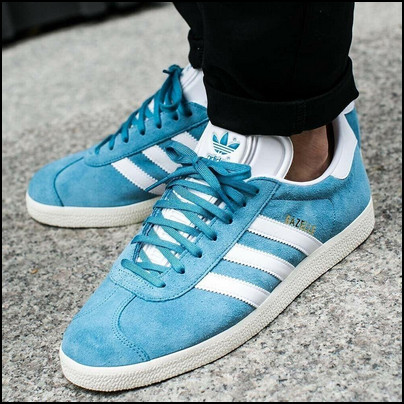
The BOOST midsole is the main game changer in the Adidas shoes. They provide excellent cushioning and responsiveness, making it a top contender for versatile shoes.
The Ultraboost and Solarboost use the BOOST technology to provide the best performance out of it.
Adidas shoes utilize the Primeknit material for the upper construction to get the most comfort.
The combination of 4D midsole and LightStrike technology makes it one of the best shoes suitable for everyday use.
Fit & Comfort
The fit and comfort vary from model to model. So it’s very challenging to describe the entire situation in short.
Puma is well-known for its lightweight and flexible design shoes.
They usually provide wider models than Nike and Adidas. It fits better for wider feet and people with bunions.
The NITRO midsole gives impressive energy returns and helps run a long distance comfortably.
In contrast, Nike offers snug and supportive shoes. They might not be the best for wide feet, but they are extremely suitable for people with narrow and regular feet.
The cushioning in their running shoes is impressive and provides decent comfort.
The Zoom Air units give massive cushioning underneath and deliver decent support while running a long distance.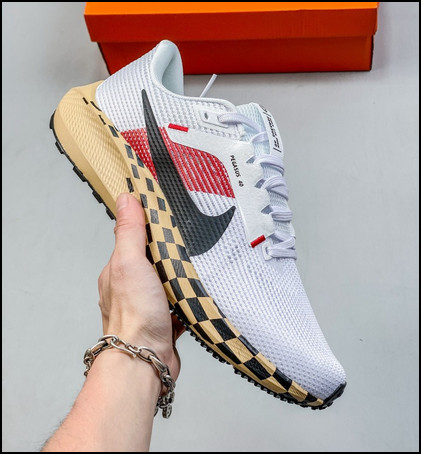
On the other hand, Adidas is more of a comfortable shoe.
The BOOST and LightStrike Pro midsoles are some of the best regarding the maximum cushioning.
The soft and comfy material is perfect for any type of feet and extremely versatile for day-to-day usage.
Durability & Performance
There are noticeable differences in durability between the three brands.
The German brothers Adidas and Puma offer similar durable shoes. And surprisingly, the quality is much better compared to Nike’s.
Puma and Adidas provide impressive upper and outsole material that lasts more than 300+ miles easily.
I wore ForeverRun Nitro from Puma and Adidas Boston 11 and 12 for my running session, and the durability was superb.
The comfort and performance level was amazing throughout my journey with the Puma and Adidas.
But the low and mid-range shoes are a bit less durable for Nike.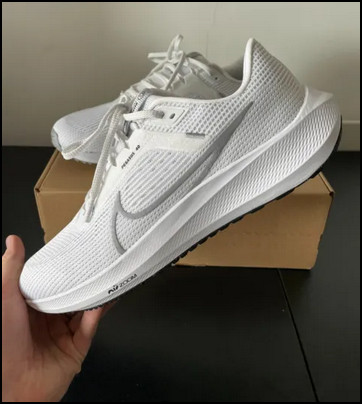
Still, they are very decent but slightly behind Adidas and Puma. I have used the Nike Blazer Mid ‘77 Vintage and Regular as my lifestyle shoes, but the material wasn’t the best in durability.
However, my experience with the Nike Pegasus 38 and 39 was amazing. They will definitely appear in my list of the best durable shoes.
All three brands make excellent shoes, but the price factor affects durability and performance.
Price Range
All three brands offer a range of products. The range starts from a very affordable price point and goes all the way to the expensive.
| Puma | Nike | Adidas |
|---|---|---|
| Around $30 - $450 | Around $25 - $305 | Around $25 - $890 |
Every brand has more than 400+ models in their collection. And they offer shoes for all types of budgets and demands.
The slippers or sandals are the lowest-priced models in all three companies.
Most of the lifestyle and casual shoes come in the mid-range. The mid-high and high range covers performance-oriented shoes for running and different sports.
Brand Ranking
Nike, Adidas, and Puma are the top names in the apparel industry. They influence the market and keep good competition among brands.
According to Forbes: The World’s Most Valuable Brands in 2020, Nike comes at #13 and Adidas at #51. Unfortunately, Puma couldn’t make it to the top 100.
From the APPAREL 50 2023 ranking, Nike sits at the top, Adidas at #5, and Puma at #19.
However, in the sportswear ranking, the Puma has made a significant improvement.
Nike and Adidas are, as always, at first and second, and Puma comes at number four.
Let’s see the brand value of Nike, Adidas, and Puma in 2023 below.
| Brand Name | Brand Value (2023) |
|---|---|
| Nike | 31.3 Billion |
| Adidas | 14.6 Billion |
| Puma | 4.5 Billion |
Note: The brand value often changes according to the demand and marketing policy.
According to statistics done in the United States, Nike, Adidas, and Puma are a lot ahead of others in terms of sportswear brand awareness.
| Brand Name | Percentage |
|---|---|
| Nike | 94% |
| Adidas | 94% |
| Puma | 90% |
It helps the brand ranking and favors them in gaining popularity and sales.
Nike secured the most market cap in the market in 2023, and Adidas came just after it.
| Brand Name | Market Cap |
|---|---|
| Nike | $155.67 Billion |
| Adidas | $34.45 Billion |
| Puma | $6.21 Billion |
There’s a huge gap between the three companies, reflecting the total annual revenue worldwide.
According to stats, in 2022, Nike made the most revenue from the apparel footwear category.
| Brand Name | Annual Revenue (2022) |
|---|---|
| Nike | $42.65 Billion |
| Adidas | $22.51 Billion |
| Puma | $8.47 Billion |
In 2023, Nike’s annual revenue increased to $51.21 billion, which kept it as the number-one apparel brand in the world.
Collaborations/Partnership
Celebrities’ collaboration or partnership with the brand is very important to attract a fanbase and increase marketing attraction.
It doesn’t necessarily prove the brand is the best, but it influences the overall popularity and revenue.
Puma has collaborated with celebrities like Dua Lipa, Selena Gomez, Rhianna, and many more to release Cali, Fenty, etc.
Besides music and model icons, Puma partners with sports celebrities like Neymar Jr., Cristian Pulisic, Lewis Hamilton, Virat Kohli, and many more.
In terms of marketing, Nike is far ahead of other apparel brands.
They have collaborated with many big names like Cristiano Ronaldo, LeBron James, Michael Jordan, Travis Scott, and many more to create the most hyped shoe series of all time.
The Air Jordan and Mercurial series have stormed the basketball and football fields with their immense popularity.
Adidas isn’t far behind Nike and Puma.
They have collaborated with popular sports superstars like Lionel Messi and James Harden. Adidas kept the attraction to their lifestyle shoes by partnershipping celebrities like Beyoncé, Pharrell Williams, and many more.
Adidas kept a balance between sports and lifestyle to create a fanbase in every sector and fulfill the demand.
Pros & Cons: Puma vs. Nike vs. Adidas
All three brands are fantastic and make impressive shoes. However, they might not suit you the best and show some advantages and disadvantages.
Puma
- »Provides fashionable design and collection.
- »The price range is very affordable.
- »Has an impressive collection on both lifestyle and sports.
- »The market share is smaller.
- »Product quality is inconsistent.
Nike
- »Product innovation is amazing.
- »Offers iconic product lineups like Air Jordan.
- »Has a huge product lineup.
- »Suitable for different types of sports.
- »Shoes are expensive.
- »Durability is slightly lower than Puma and Adidas.
Adidas
- »Diverse product range.
- »Offers good material and quality.
- »Provides excellent sustainability.
- »Top brands for sportswear.
- »Shoes are slightly pricey.
- »Less personalization option.
Adidas vs. Nike vs. Puma: Which Should You Choose?
Adidas, Nike, and Puma are the top giants in the footwear market. They have diverse series and models to fulfill everyone’s demands.
However, if you want to pick a single brand among the three, it would be very difficult.
Because each company has a good and flop collection, judging them from one perspective won’t bring the best result.
Instead, you need to prioritize your requirements and the appearance of a shoe.
If you want a unique and bold-looking lifestyle shoe, Puma will appear at the top.
Nike would be the best choice if you are looking for a combination of looks and performance with the latest innovations.
However, if you prefer seamless design, quality materials, and performance, Adidas will be your best pick.
Ultimately, the decision entirely depends on your preferences, and you should focus on your needs before buying a shoe.
Frequently Asked Questions
Which one is better Nike, Adidas, or Puma?
All three brands make good shoes. But Nike is impressive for basketball and high-performance running shoes. On the other hand, Adidas is better as a professional sportswear brand, and Puma is better for good lifestyle shoes.
Are Puma and Adidas the same brand?
No, Puma and Adidas aren’t the same brand. Puma was established in 1949 by Rudolf Dassler, and Adolf Dassler and Rudolf Dassler established Adidas. The founders of the two companies were brothers, but later, they split up and ran their own company.
Which is bigger Nike, Adidas, or Puma?
Nike is the biggest and ranked first in the apparel brand. It is also the 13th most valuable brand in the world. Adidas and Puma are big names in the footwear industry but not as large as Nike.

